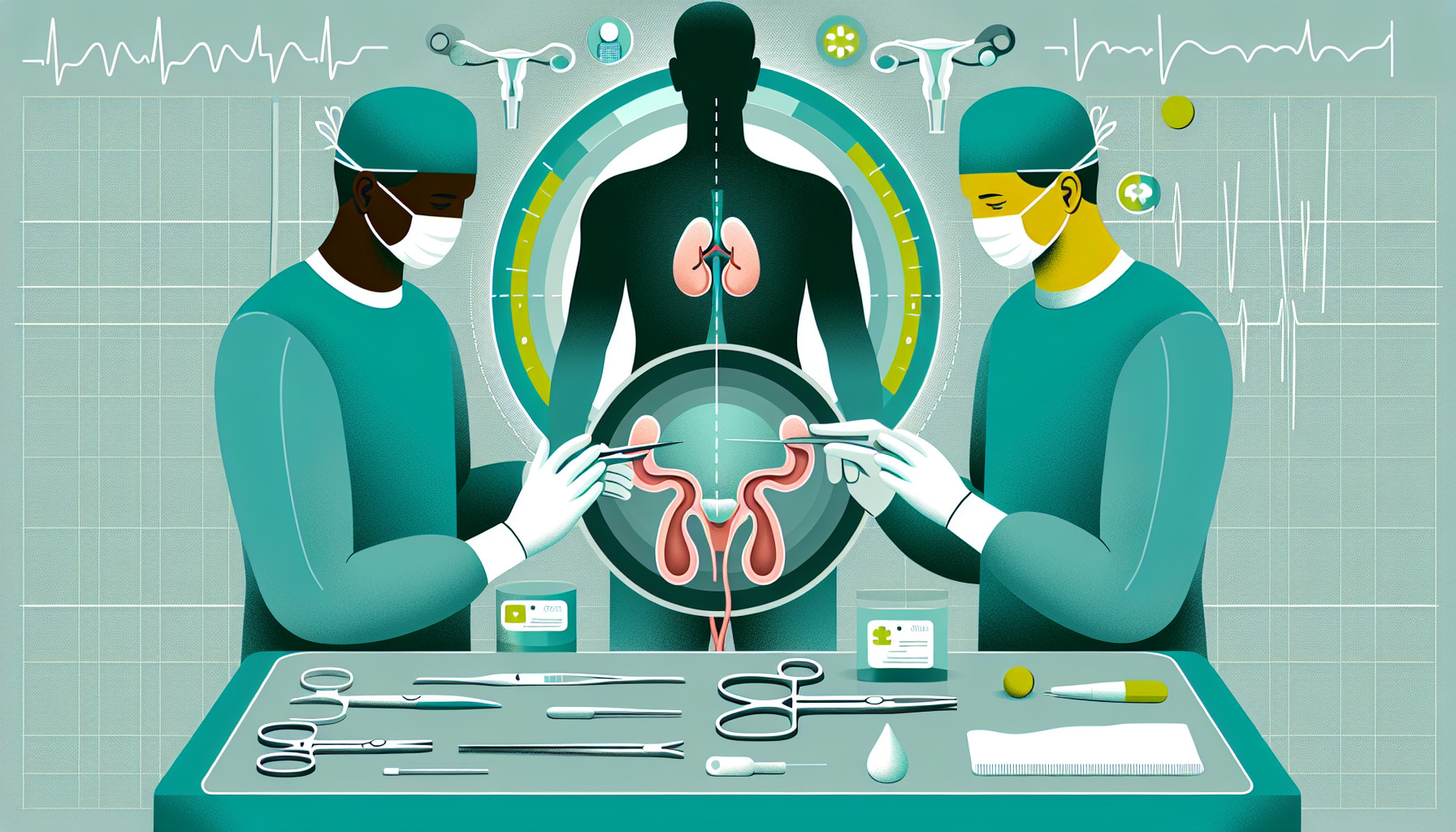Our Summary
This research paper is about the impact of a specific type of bladder cancer surgery, called radical cystectomy, on women’s sexual function. This is an important but often neglected aspect of recovery after bladder cancer. The paper reviews recent studies on this topic and discusses ways in which sexual function might be improved after surgery.
The research shows that sexual function is important to women and that many women want more information and support around this issue before and after their surgery. The surgery can affect sexual function in several ways, including hormonal changes from removing the ovaries, physical changes from altering the vagina, and changes in sensation due to damage to certain nerves and blood vessels.
The good news is that techniques have been developed to try and preserve these structures and therefore maintain sexual function. However, more long-term studies are needed to compare these techniques and make sure they are safe from a cancer perspective. The paper suggests that preserving the ovaries and the front wall of the vagina, as well as considering estrogen replacement, could improve sexual function for many women after surgery.
FAQs
- How does radical cystectomy impact female sexual function?
- What are some techniques that have been developed to preserve sexual function after radical cystectomy?
- What factors should be considered for patients undergoing radical cystectomy to ensure their sexual function is maintained?
Doctor’s Tip
A helpful tip a doctor might tell a patient about cystectomy is to discuss any concerns or questions they have about sexual function before and after the procedure. It is important to have open communication with your healthcare team to address any changes in sexual function that may occur and to explore potential techniques or treatments that may help improve outcomes. Additionally, considering options such as ovarian preservation, anterior vaginal wall preservation, and vaginal estrogen replacement may be beneficial for maintaining sexual function post-cystectomy.
Suitable For
Patients who are typically recommended cystectomy are those with bladder cancer that has not responded to other treatments, such as chemotherapy or radiation therapy. Additionally, patients with aggressive or advanced bladder cancer may also be recommended for cystectomy. In some cases, patients with non-cancerous conditions such as interstitial cystitis or neurogenic bladder may also be recommended for cystectomy if other treatments have been unsuccessful.
Timeline
Before cystectomy:
- Diagnosis of bladder cancer and discussion of treatment options, including radical cystectomy.
- Preoperative counseling and discussion of potential side effects and complications of the surgery.
- Surgery is performed to remove the bladder, surrounding tissues, and possibly the uterus and ovaries in women.
- Postoperative recovery period, which may include pain management, monitoring for complications, and physical therapy.
After cystectomy:
- Immediate postoperative period involves monitoring for complications such as infection, bleeding, and urinary leakage.
- Long-term follow-up to monitor for cancer recurrence and overall health.
- Potential changes in sexual function due to hormonal changes from ovarian removal, anatomic changes from vaginal alteration, and sensation changes from damage to the neurovascular bundle.
- Discussion with healthcare providers about strategies to improve sexual function, such as ovarian preservation, anterior vaginal wall preservation, and vaginal estrogen replacement.
- Continued support and counseling for patients to address any concerns or challenges related to sexual function and overall quality of life.
What to Ask Your Doctor
Some questions a patient should ask their doctor about cystectomy include:
- How will the surgery affect my sexual function?
- Are there any techniques or strategies that can help preserve my sexual function?
- What are the potential hormonal changes I may experience after the surgery?
- Will I need any additional treatments or therapies to address any changes in sexual function?
- How can I best prepare for the surgery in order to minimize any negative impact on my sexual health?
- Are there any support groups or resources available for bladder cancer survivors regarding sexual function and intimacy?
- What are the long-term implications for my sexual health and overall quality of life after the surgery?
- Are there any specific exercises or techniques I can do to improve sexual function after the surgery?
- Are there any potential risks or complications related to sexual function that I should be aware of?
- How often should I follow up with my healthcare provider to monitor and address any changes in sexual function after the surgery?
Reference
Authors: Escott M, Avulova S, Bree KK, Westerman ME. Journal: Curr Opin Urol. 2022 Sep 1;32(5):545-553. doi: 10.1097/MOU.0000000000001026. PMID: 35916011
